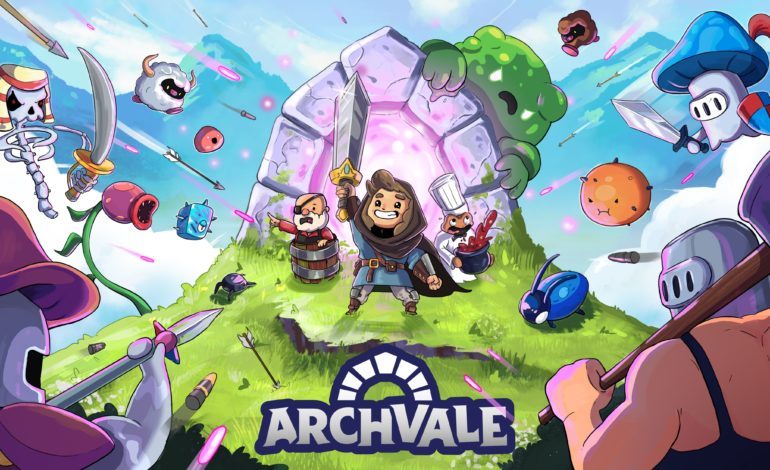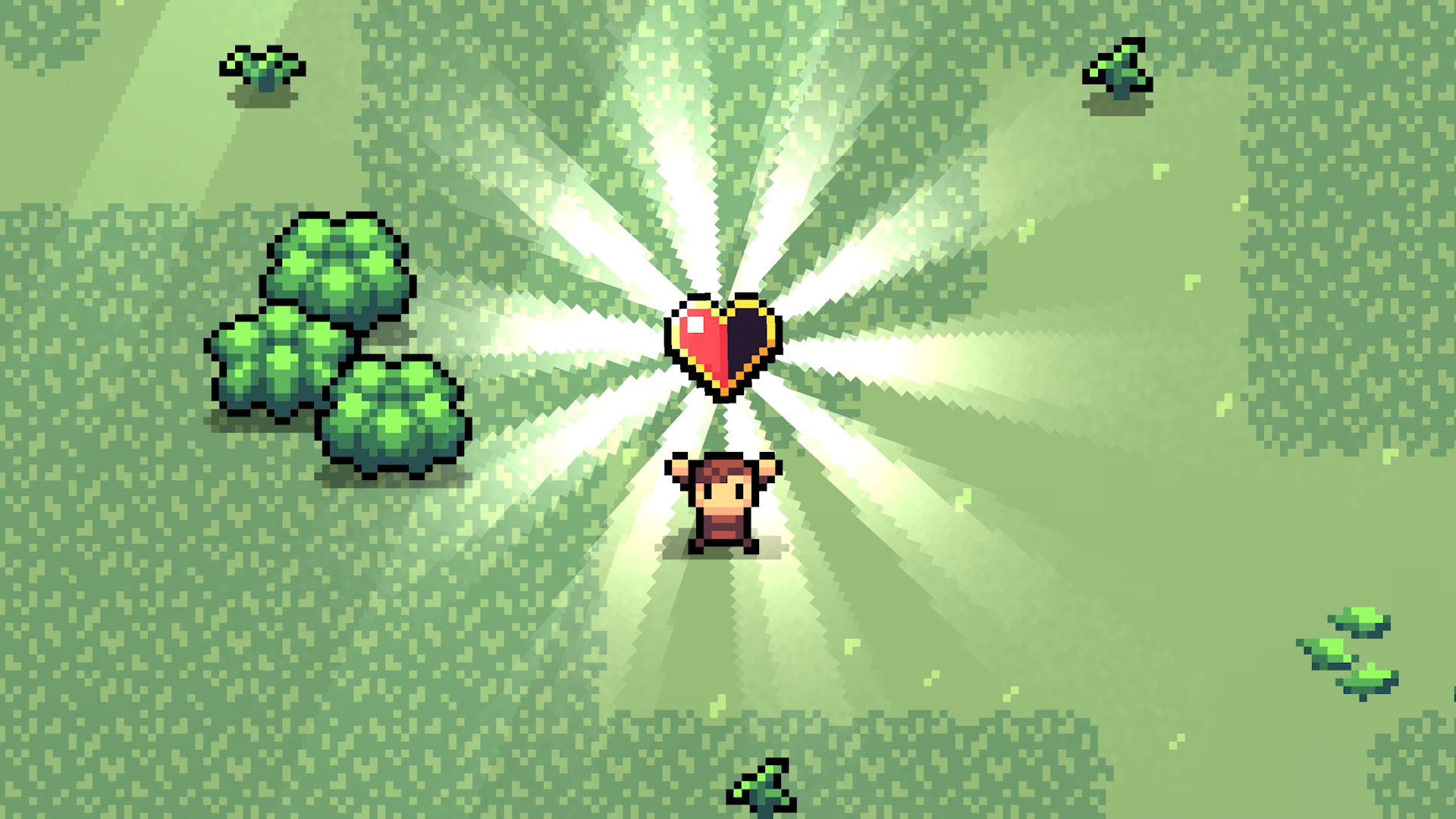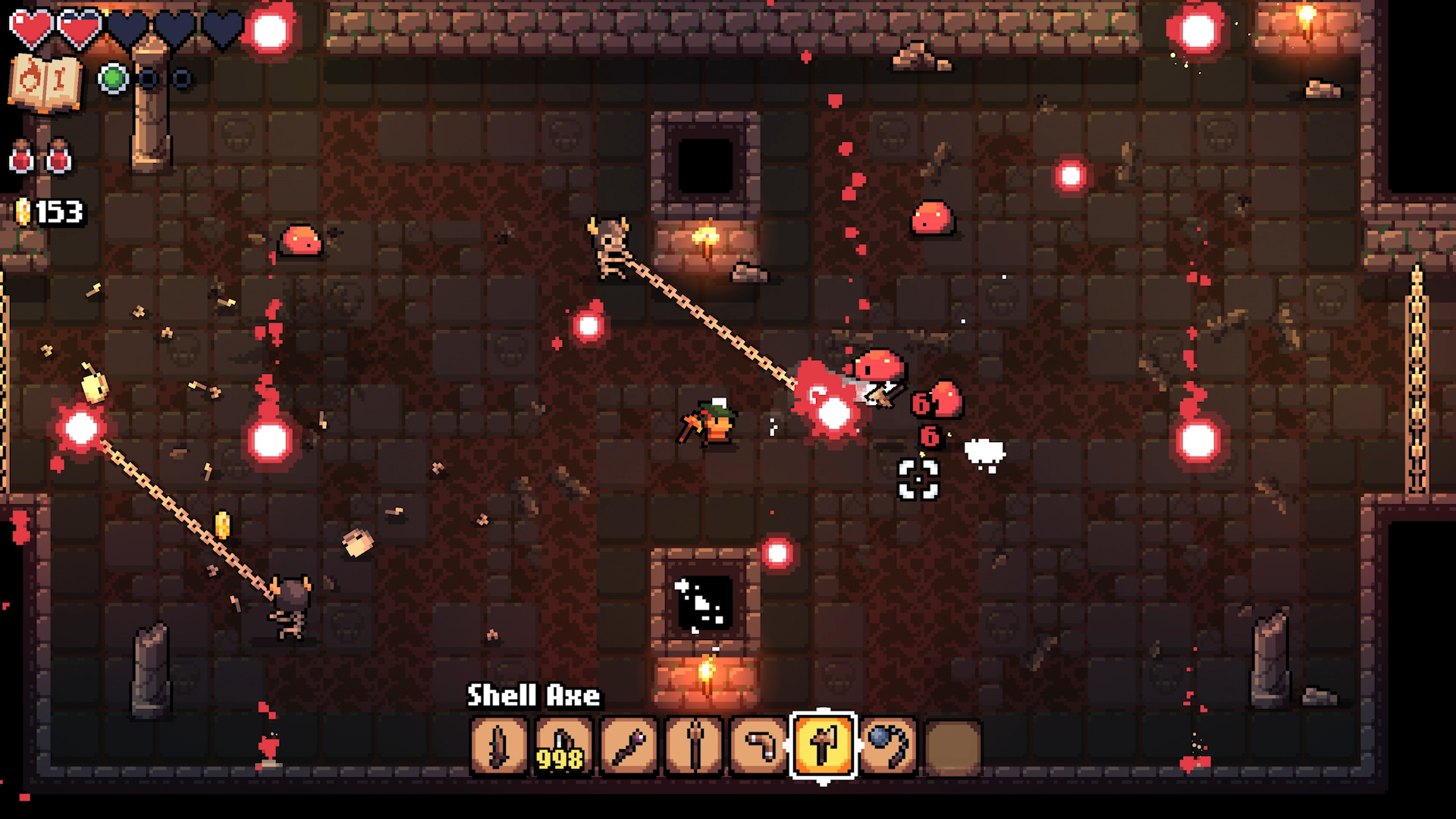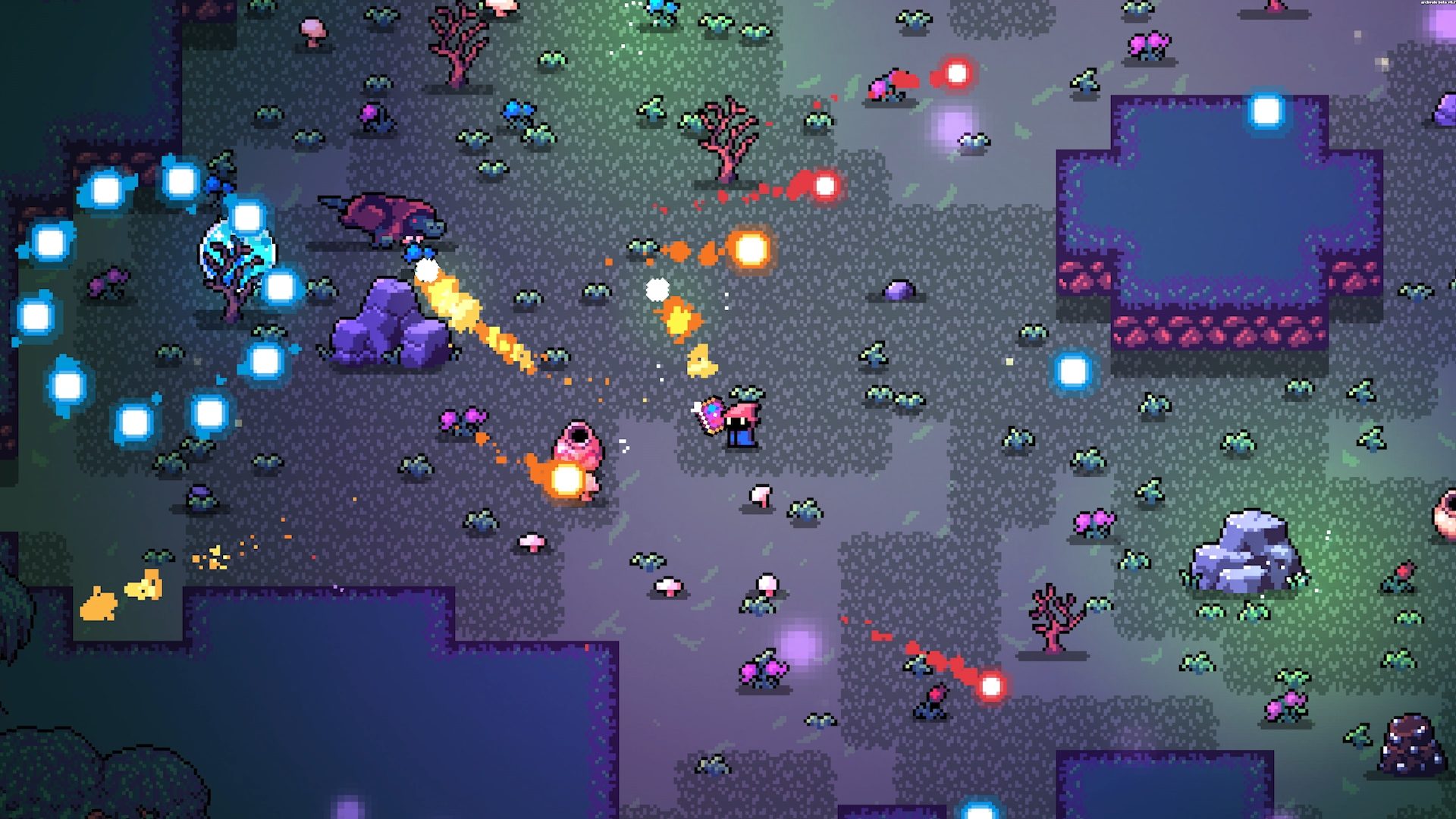

Idoz & Phops’ new game Archvale takes the classic indie game approach of combining two popular game genres and layering it with a clean pixel art skin. This time though, the game combines old-school RPGs like The Legend of Zelda with 2D bullet hell shooters. The combination gives the game a pretty unique spin and some gameplay and structure that you likely haven’t seen before. Despite this though, the game often struggles to find a wide variety of uses for its approach, leaving the game feeling a little barebones at times.
Archvale begins quite quickly, with a short tutorial introducing you to the main mechanics (shooting, moving, a dash, etc.), then tosses you right out into the first area in the game: a quaint forest populated mostly by slimes, bees, and other traditional small-fry enemies. The area is broken up into small rooms, each one with a set amount of enemies. Once the enemies in the room have been defeated, the exits all open up and you can continue on. Not all the rooms have enemies, though. Some might have fountains, which work as save points that save your game and refresh your health and potions, and others might have chests, items, or a little maneuvering mini-game that allows you to get badges, which give you stat buffs or abilities to make the game easier.


To touch upon the gameplay, as you might expect from a bullet hell, the game can be very difficult at times. I played on the easiest difficulty, but I still frequently encountered rooms and areas that I was simply not prepared for. At least on the easiest difficulty, it never felt too unfair or unexpected though, and the game still felt pretty approachable, even to someone not as familiar with bullet hell games. The game does encourage you to find and craft a wide range of weapons, that all have different stats, ranges, and patterns, but the system is not nearly as complex as it might initially seem and really boils down to a numbers game of finding the weapon with the most DPS (or fastest fire speed if you’re me) and sticking with that until you find another weapon of the same type that deals more damage.
After exploring a bit you’ll come across a couple of towns that have shopkeepers, blacksmiths, and banks that allow you to store your money (you lose the money in your wallet when you die). Despite the combat pulling from bullet hell games, these open-world elements are all very reminiscent of traditional SNES-style RPGs. The game wants you to explore the world, collect materials, craft gear, talk to the townspeople, and carve your story in the way that early RPGs did.


At the end of the area, you’ll come across your first dungeon. The dungeon is structured exactly like the open world, with individual rooms that you can leave once you have taken out all the enemies. Now though, some rooms will have small movement-based puzzles to solve with your dash ability, and you will need to find keys that open doors to move around the dungeon. Upon beating the first dungeon, the game world will open up and you can explore it as you please, much like an older Zelda game, though the different areas have pretty distinct difficulties so the game might be a little more linear than it lets on.
On paper, Archvale seems pretty interesting. Who doesn’t love a good Zelda game, and adding bullet hell mechanics should add a nice twist on the standard affair, but Archvale just can’t deliver on its promise. Specifically, the game really struggles to get creative. I don’t even see much reason to talk about the art style because it really doesn’t do anything I haven’t seen dozens of times before, and the gameplay just never really goes anywhere. Every room in the game is exactly the same. Sure, the enemies have different sprites and might have slightly different attack and bullet patterns, but at the end of the day, they all feel so similar. Not to mention all of the rooms are the same rectangular room with the same enemies, and none of them have anything of interest.


The game just feels far too modular. Archvale clearly began with an interesting concept, but the game never makes an effort to explore creative uses of it. As I mentioned, even the dungeons have the exact same structure and many similar enemies to the open world. You move through the game world at a breakneck pace, but never seem to get anywhere. Every fight just ends by leading you directly into another, far too similar fight, and every room leads you into another room barely distinguishable from the last. The story is borderline non-existent, and the game just distinctly lacks character.
If you love bullet hells or want to try out a new kind of game, Archvale isn’t a bad game to dip your toes into, but the game simply has no depth to allow you to dive. Someone who really loves the gameplay might be able to stick with the game, but if you’re looking for anything more, Archvale simply doesn’t have anything to offer. If you can get this game on sale then it might be worth a few hours of fun, but otherwise, this is definitely a game that you can sit out on.
Score: 6 out of 10
Reviewed on PC
Play games, take surveys and take advantage of special offers to help support mxdwn.
Every dollar helps keep the content you love coming every single day.
